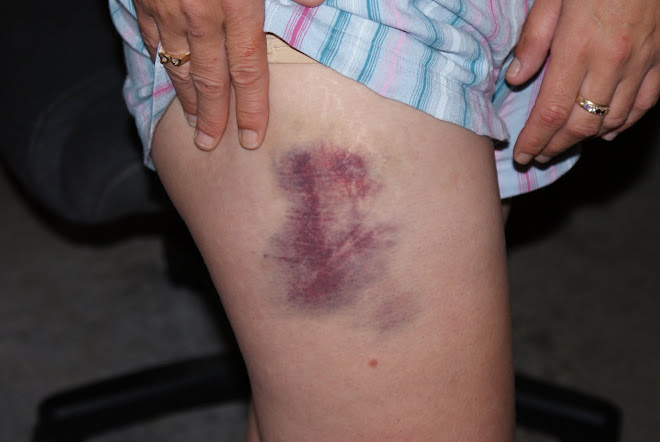Source: Global
Kathryn Blaze Carlson and Kenyon Wallace, National Post; With Files From Matthew Coutts: Monday, January 11, 2010
Ontario Provincial Police commissioner Julian Fantino is facing a charge of attempting to influence municipal officials, an indictable offence, after a justice of the peace yesterday signed a summons requiring the former Toronto police chief to appear before a criminal court.
The summons comes after a Dec. 31 Ontario Superior Court order demanding a formal charge be laid in relation to allegations against Mr. Fantino brought forward by a private complainant, Gary McHale, who has long been at odds with the commissioner over his handling of the aboriginal protests in Caledonia.
"The summons makes sense," said Mr. McHale. "It's great that the system has finally kicked in and the charge has gone forward. I'm happy that the courts have upheld the rights of average people to have these types of cases prosecuted."
The OPP could not be reached for comment last night, but Brendan Crawley, spokesman for the Ministry of the Attorney General, wrote in an email that "when a private prosecution involves an indictable offence, the Crown Attorneys Act requires the Crown to intervene and assume carriage of the prosecution."
Now that Mr. Fantino has been summoned, onlookers question the logistics of launching a criminal case against the province's top officer.
"This is a very unusual case," said Steven Skurka, a partner at Toronto law firm Skurka & Spina LLP. "I can't remember a police officer ever being charged in private prosecution, let alone the chief."
"This is uncharted territory," echoed James Stribopolous, associate law professor at York University's Osgoode Hall.
At the centre of the current dispute is Mr. Fantino's April 7, 2007 email to Haldimand County's mayor and councillors in which he allegedly warned the politicians not to support anti-occupation protests.
The Commissioner wrote that he would hold the county directly accountable for any injuries suffered by OPP officers during protests by a contentious group known as "Caledonia Wake Up Call," led by Mr. McHale. He also warned that he would advise the Ministry of Community Safety and Correctional Services not to renew the OPP's contract with Haldimand County for policing once it expired if councillors supported the protest group.
A letter sent to Mr. McHale yesterday by the Ministry, and obtained by the National Post, states that because Mr. Fantino is a police officer, the case will be assigned to a Crown within the justice prosecutions unit, a division formed to prosecute criminal cases where the accused is someone involved in the administration of justice, such as a police officer.
"I can assure you that the Crown assigned to this matter will fairly and appropriately apply all of the applicable legal standards to this case as are applied to every other criminal case in Ontario, regardless of who is charged, or who commenced the charge," wrote Kenneth Campbell, director of the Crown's criminal law office.
Because the allegations were brought forward by a private complainant, the Identification of Criminals Act does not apply, and Mr. Fantino will not be photographed or fingerprinted.
Next, the Ministry must decide whether to pursue the charge, a decision Mr. Skurka said rests on two criteria: whether there is a reasonable prospect of conviction and whether it is in the public interest to do so.
"They could withdraw the charge, but that's not something to be done capriciously," he said. "There's an added layer of political accountability."
Mr. Skurka said the Attorney General's decision would be announced at the first court appearance, likely within several weeks of the summons. Mr. McHale said he was informed yesterday by the Ontario Court of Justice in Cayuga, about 50 kilometres south of Hamilton, that Mr. Fantino is expected to appear as early as Feb. 3.
If the Crown decides to pursue the charge, which can carry a sentence of up to five years in prison, the Ministry may choose to hire an independent criminal lawyer -- as it did in the case of former Attorney General Michael Bryant.
Mr. Skurka said that while the case is certainly unusual, the Attorney General "prosecutes police officers all the time," and it makes no difference that Mr. Fantino is the commissioner.
"I see no conflict of interest in terms of the Attorney General dealing with this matter," he said. "Commissioner Fantino is independent of the Attorney General's office."
Mr. Stribopolous, meantime, said it would be "a prudent move" for the Ministry to hire independent counsel. "It's a grey area, but I would think they'd bring in a special prosecutor for the sake of optics," he said, adding Mr. Fantino would benefit from such a decision.
"That way, if the charges are dropped, then it would not look like he was getting any favours. If I were Fantino, I'd want exoneration from an independent prosecutor."
Whether the Attorney General decides to hire a special prosecutor might affect Mr. Fantino's decision to stay on as commissioner, Mr. Stribopolous said. "He'll probably want to see what happens at the first court appearance," he said. "It might be unseemly to stay on as commissioner, but there's no hard and fast rule."
Said Mr. Skurka: "My view is that it is appropriate for him to stay on as commissioner because he has the right to a presumption of innocence just like anyone else."
© Copyright (c) CW Media Inc.
Monday, January 11, 2010
Subscribe to:
Post Comments (Atom)
They had No Choice!

They wore these or I took away thier toys for 7 days!
"Damn Street Racer"pays with Brusies


















1 comment:
Good ole Julian is in the news again!
Another 500k down the drain defending his good name and an allegation of attempting to influence municipal officials in Caledonia!
Post a Comment